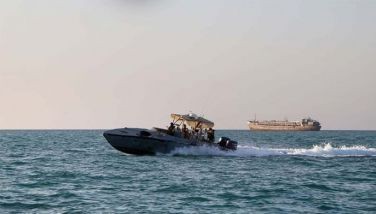UK analyst: Philippine gov't corruption heightens disaster risk
MANILA, Philippines — The Philippines is more at risk from natural hazards not only due to its geography, but due to high levels of corruption and poverty, an environmental analyst said.
Citing the Natural Hazards Risk Atlas, James Allan, head of environment at global risk analytics company Verisk Maplecroft, said the political and economic factors make the country more vulnerable to effects of cyclones, floods, earthquakes, tsunamis, storm surges, volcanoes and landslides.
"Countries with higher levels of corruption and poverty typically suffer more fatalities per disaster event, so both factors are likely to heighten risk for the Philippines from the regular natural hazards that affect the country," Allan said in an e-mail exchange with Philstar.com.
The international study identified that eight of the top ten cities most at risk globally is in the Philippines, namely Tuguegarao (2nd), Lucena (3rd), Manila (4th), San Fernando (5th) and Cabantuan (6th).
READ: 21 Philippine cities most at risk from hazards globally
Moreover, 13 other areas in the Philippines figure in the top 100 of over 1,300 cities with the greatest exposure to natural hazards, the report said.
Allan said, however, that the situation in the Philippines is "slowly improving" but more needs to be done in the part of government.
"If the government can do more to tackle corruption and make sure that everyone benefits from economic growth then the country should be better able to withstand future natural hazards," he said.
Lead environmental analyst Richard Hewston said, meanwhile, that the Philippines also has to clip corruption and minimize effects of natural hazards to sustain its rapid economic growth.
He said the risks are even more observable in the aftermath of the 2013 super typhoon that ripped through central Philippines.
"As Typhoon Haiyan (Super Typhoon Yolanda) in the Philippines and the tsunami in Japan showed us, natural hazard events can have far-reaching and long-lasting impacts on supply chains, business and economies," Hewston said.
"With foreign investment continuing to flow into countries highly exposed to natural hazards, those which are unable to demonstrate robust resilience may lose an element of their competitiveness," he added.
The full report of the Natural Hazards Risk Atlas is available on maplecroft.com

- Latest
- Trending




























